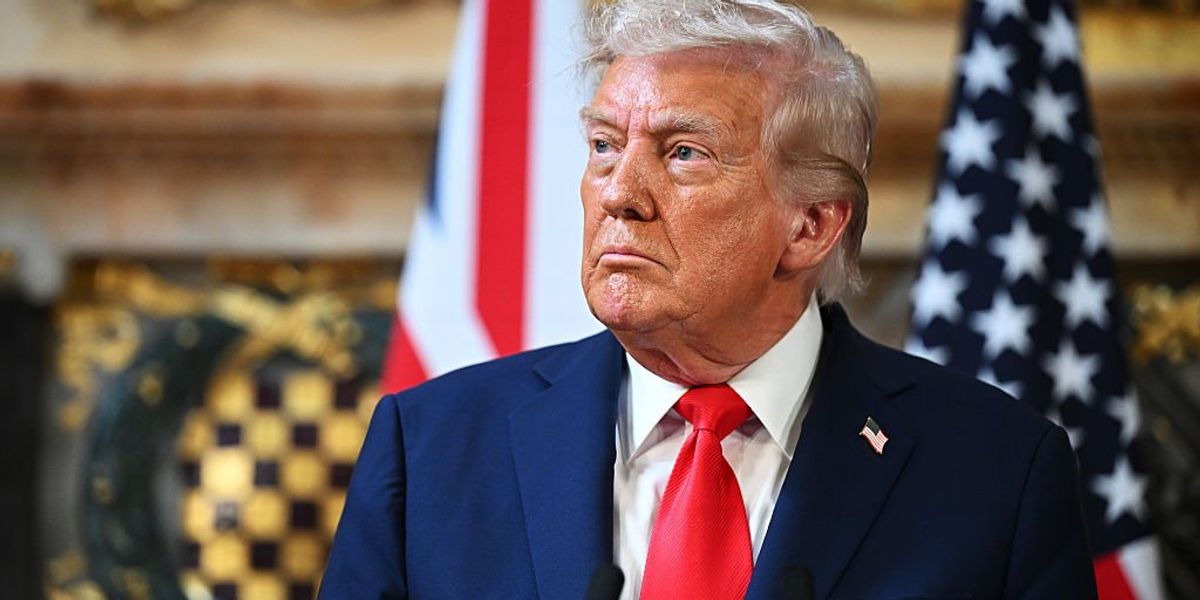NPR CEO Katherine Maher admitted during her testimony before Congress on Wednesday that the organization made a mistake by failing to cover the Hunter Biden laptop story more aggressively during the 2020 election.
Maher, along with PBS CEO Paula Kerger, appeared before the newly formed Delivering on Government Efficiency (DOGE) subcommittee to answer questions about allegations of biased news coverage and federal funding support for the organizations.
“I do want to say that NPR acknowledges we were mistaken in failing to cover the Hunter Biden laptop story more aggressively and sooner,” Maher told Rep. Michael Cloud, R-Texas, acknowledging the network’s failure to adequately address the explosive reporting.
Elon Musk Called This Financial News ‘Terrifying’
Maher repeated her acknowledgment during a separate exchange with Rep. Brian Jack, R-Ga. “We made a mistake,” Maher said, further confirming the network’s misstep regarding the handling of the story.
Maher, who became NPR’s CEO in 2024, was not in charge at the time the laptop story first emerged.
However, her remarks still highlight the ongoing debate surrounding media coverage of politically sensitive issues during the 2020 presidential election.
The Hunter Biden laptop story, first broken by The New York Post in October 2020, raised significant questions about the business dealings of Hunter Biden, particularly overseas, and the potential involvement of his father, Joe Biden, who was then the Democratic nominee for president.
FREE Concealed Carry Gun Laws & Reciprocity Map
The laptop, reportedly abandoned by Hunter Biden at a Delaware repair shop, contained emails, photos, and videos—some of which showed disturbing images of drug use and lewd acts.
Many mainstream news outlets dismissed the story at the time, with some outlets even suggesting that it might be part of a Russian disinformation campaign.
NPR, in particular, was vocal in its decision not to cover the story.
NPR’s public editor, Kelly McBride, addressed the lack of coverage, stating that the story had “many, many red flags,” including its potential connections to Russia, and suggesting that the claims in the Post’s reporting were not significant enough to warrant attention.
“We don’t want to waste our time on stories that are not really stories, and we don’t want to waste the listeners’ and readers’ time on stories that are just pure distractions,” NPR managing editor Terence Samuel told McBride at the time.
“And quite frankly, that’s where we ended up, this was … a politically driven event, and we decided to treat it that way.”
The decision to ignore the story, which would later prove to be legitimate, was sharply criticized by many, including former NPR editor Uri Berliner.
In an essay published last April, Berliner described the internal resistance to covering the laptop story.
He recalled one meeting where an NPR colleague suggested that not following the story was a good thing because it could have helped Donald Trump’s campaign.
“The laptop was newsworthy. But the timeless journalistic instinct of following a hot story lead was being squelched,” Berliner wrote.
“During a meeting with colleagues, I listened as one of NPR’s best and most fair-minded journalists said it was good we weren’t following the laptop story because it could help Trump.”
In the essay, Berliner also noted that when the facts in the Post’s reporting were later confirmed and the emails were independently verified, NPR could have admitted to its mistake.
However, he claimed the organization, like with the Russia collusion narrative, avoided making a transparent correction. “We didn’t make the hard choice of transparency,” Berliner added.
In addition to addressing the Hunter Biden laptop story, Maher also commented on NPR’s previous dismissal of the Wuhan lab-leak theory, which was initially brushed off as a conspiracy theory.
During her testimony, Maher acknowledged the legitimacy of the lab-leak theory, which had been backed by the CIA after NPR had initially dismissed speculation regarding the origins of the COVID-19 pandemic.
NPR CEO Katherine Maher was completely caught off guard today after Rep. Brandon Gill started reading her past tweets to her one by one.
Absolutely brutal.
Gill: Do you believe that America is addicted to white supremacy?
Maher: I believe that I tweeted that. I believe much… pic.twitter.com/TfBt0h1qDF
— Collin Rugg (@CollinRugg) March 26, 2025
️: NPR’s Katherine Maher admits it’s ‘concerning’ that 100% of her editorial board—87 members—are registered Democrats, with zero Republicans.
NPR’s blatant partisan imbalance is unacceptable—taxpayers should not be forced to foot the bill for a one-sided echo chamber. pic.twitter.com/BMWnxq9Ffe
— Congressman William Timmons (@RepTimmons) March 26, 2025
Despite the admissions regarding past coverage, Maher reiterated that NPR remains a “nonpartisan” news organization.
She emphasized that the outlet’s editorial decisions are made without political bias, although her testimony has prompted further scrutiny regarding the network’s coverage of politically charged topics, particularly during election periods.
The testimony of Maher and Kerger before the DOGE subcommittee is part of a larger examination into the role of federally funded media outlets in shaping public discourse, with Republicans focusing on concerns about bias and accountability.
American Made Patriotic Apparel – Save 15% with Promo Code MERICA
The opinions expressed by contributors and/or content partners are their own and do not necessarily reflect the views of LifeZette. Contact us for guidelines on submitting your own commentary.
Read the full article here


![NPR Chief Forced to Concede Their Blatant Bias on Hunter Biden Laptop [WATCH] NPR Chief Forced to Concede Their Blatant Bias on Hunter Biden Laptop [WATCH]](https://www.rvmnews.com/wp-content/uploads/2024/12/2024.12.02-04.45-rvmnews-674de433c6b98.jpg)




![48 Trump Nominees Confirmed in the Senate in a Single Vote [WATCH] 48 Trump Nominees Confirmed in the Senate in a Single Vote [WATCH]](https://www.lifezette.com/wp-content/uploads/2025/09/2025.09.19-12.28-lifezette-68cd4c6ac2dbd.jpg)




![Jimmy Kimmel Being Suspended is How ‘Democracy Dies’ [WATCH] Jimmy Kimmel Being Suspended is How ‘Democracy Dies’ [WATCH]](https://www.lifezette.com/wp-content/uploads/2025/08/2025.08.05-05.07-lifezette-68923a5548c09.jpg)